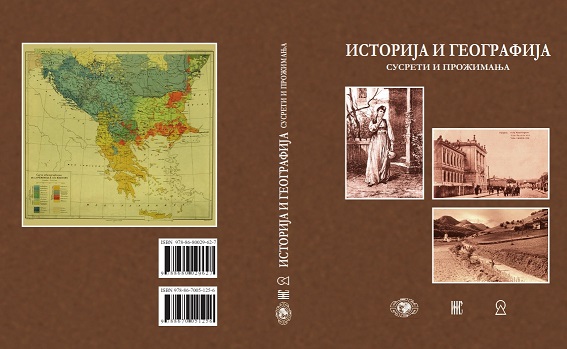The Invention of the Balkan Identities: Finding the Founding Fathers and the Myths of Origin – The Montenegrin Case
The Invention of the Balkan Identities: Finding the Founding Fathers and the Myths of Origin – The Montenegrin Case
Author(s): Dragana Lazarević
Subject(s): Political history, Transformation Period (1990 - 2010), Period(s) of Nation Building, Politics and Identity, Identity of Collectives, Wars in Jugoslavia
Published by: Institut za noviju istoriju Srbije
Keywords: Nation-building; separate identity; Montenegrins; Doclean Narrative; misinterpretation; probabilistic terminology; Western academia;
Summary/Abstract: This paper examines the accelerated process of nation-building in Montenegro in the aftermath of the wars in Former Yugoslavia and its separation from Serbia in 2006. Whilst its theoretical premises that are based on the Hobsbawm’s theory of the novelty of the nation are widely accepted by the majority of scholars interested in the Balkans, there appears to be a great discrepancy in the practical application of the theoretical postulates. The paper gives a general overview of the misinterpretation of the theory in the post-1990 narrative of the early Montenegrin history that is widely distributed by the supporters of the appellation of a separate identity of the latest South Slav nation. In the form of summary, the paper points out to the unrestricted use of the probabilistic terminology which cannot be confirmed either by the primary sources or by the material evidence in situ. Even though the attempts to create a separate Montenegrin nation predate the 1990s period, as pointed out by a number of scholars native to the region on many occasions, its academic self-fulfillment was enabled only when the Western promoters of the new Montenegrin identity undertook the task of presenting to the West the deliberate misinterpretation of the sources in order to justify the role of the (mainly) Anglo-Saxon academia in supporting the political reasons beyond the break-up of Yugoslavia. The case-study of the Doclean Narrative, created by the selective reading of the sources is a prime example of how to justify the nation as a political construct.
Book: Историја и географија: Сусрети и прожимања
- Page Range: 423-443
- Page Count: 21
- Publication Year: 2014
- Language: English
- Content File-PDF

